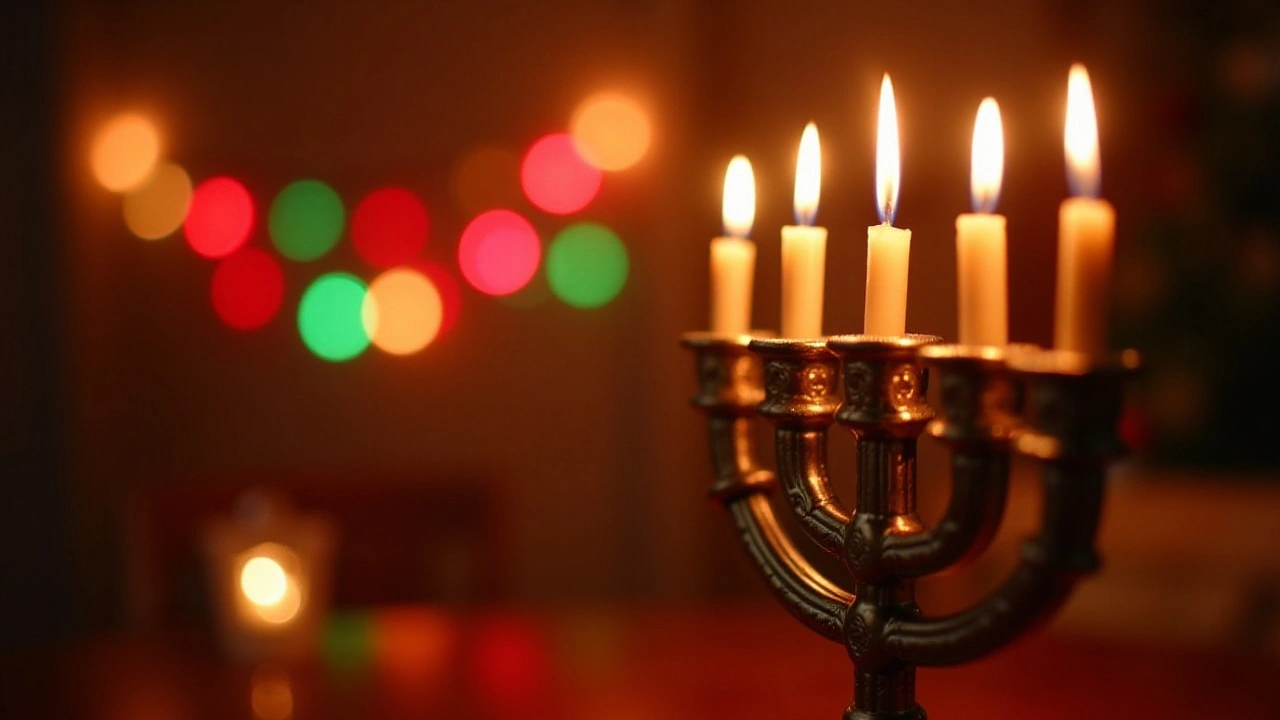The Rare Convergence of Hanukkah and Christmas
In an uncommon alignment of calendars, Hanukkah and Christmas will both be celebrated on December 25, 2024. This overlap, occurring just four times since the early 20th century, brings forth opportunities for cultural intermingling and deeper understanding. The occurrence is rare because the Jewish calendar, which dictates the dates for Hanukkah, is based on lunar cycles, unlike the solar-based Gregorian calendar. This year, it offers not just a calendrical curiosity but a unique cultural phenomenon often affectionately referred to as 'Chrismukkah.'
The Significance of Chrismukkah
For many, Chrismukkah isn't merely a blending of two holidays but serves as a conduit for interfaith engagement and celebration. Rabbi Rick Jacobs, the president of the Union for Reform Judaism, highlights the importance of such intersections in fostering dialogue and cooperation between Jewish and Christian communities. He suggests that these shared dates present meaningful opportunities to build bridges across faiths. The sentiment is echoed by Candida Moss, a professor of theology at the University of Birmingham, who underscores the importance of recognizing the shared historical and spiritual roots in these occasions, fostering mutual respect and learning.
Rabbi Josh Stanton, vice president of the Jewish Federations of North America, emphasizes the significance of interfaith initiatives, particularly in modern pluralistic societies. He remarks that such overlapping occasions should encourage collaboration rather than competition or misunderstanding between communities celebrating Hanukkah and Christmas. Stanton also stresses the importance of safety, advocating for open and sincere outreach as a means of building robust and resilient communities.

The Cultural Impact of Chrismukkah
The term 'Chrismukkah' gained traction primarily due to its portrayal in pop culture. Most notably, it broke into mainstream consciousness with the TV drama "The O.C." in 2003, engaging a broad audience with the concept of hybrid holiday experiences. Since then, the notion has not only been a subject of entertainment narratives but has also captured the imagination of faith-based and secular communities alike. This season, the Hallmark Channel has embraced the theme with a movie exploring the fusion of Hanukkah and Christmas traditions, appealing to viewers interested in stories that explore love, tradition, and family during the winter holidays.
Public celebrations and cultural expressions of Chrismukkah abound. Many Jewish organizations are preparing to host public menorah lightings alongside more conventional Christmas displays, creating spaces for shared enjoyment and appreciation. In places like Houston, events such as a 'Chicanukah' party invite communities to partake in festive activities that highlight both Jewish and Christian traditions, underscoring the harmonious blending of cultures and customs.
Navigating Challenges and Concerns
Despite the overwhelmingly positive opportunities this intersection presents, there are challenges and concerns, particularly regarding antisemitism and political tensions. The juxtaposition of these holidays sometimes exacerbates differing opinions on cultural appropriation and religious representation, requiring careful navigation. Jewish and Christian leaders, however, view the overlap as a chance to engage, understand, and alleviate potential conflicts through respectful dialogue and active participation in interfaith initiatives.
Beyond the festivities, the overlap of Hanukkah and Christmas shines a light on opportunities for advocacy, educational endeavors, and social justice initiatives. This unique moment allows communities to come together in the spirit of the holidays to address broader societal issues, aligning with the core values of both Hanukkah and Christmas such as charity, generosity, and peace. Interfaith engagement is not just about celebrating differences but also about collectively championing shared values and mutual understanding in a world that often feels divided.

The Future of Interfaith Celebrations
Looking ahead, the next occurrence of Hanukkah and Christmas sharing a start date won't happen until 2035, providing ample time for individuals and communities to reflect on the experiences from 2024's unique Chrismukkah. This overlapping of traditions creates more than just an opportunity for celebration; it allows for the possibility of sustained interfaith engagement, conversation, and cooperation well beyond the holiday season. Observing how these shared experiences can shape cultural dialogue may offer insights into how communities can grow closer amid diversity, emphasizing empathy, compassion, and the shared human experience.
Chrismukkah serves as a reminder of what's possible when people from different backgrounds come together to honor what makes each culture and faith unique while embracing the similarities that connect them. The future of interfaith celebrations may involve even deeper integrations and cooperative community events, drawing from the strengths and wisdom of various traditions to foster environments of inclusion and peace. Whether the focus is on food, festival traditions, or stories of hope and light, the intersection of Hanukkah and Christmas presents a chance to reflect on the lessons and joys that such vibrant cross-cultural interactions can offer.

Comments